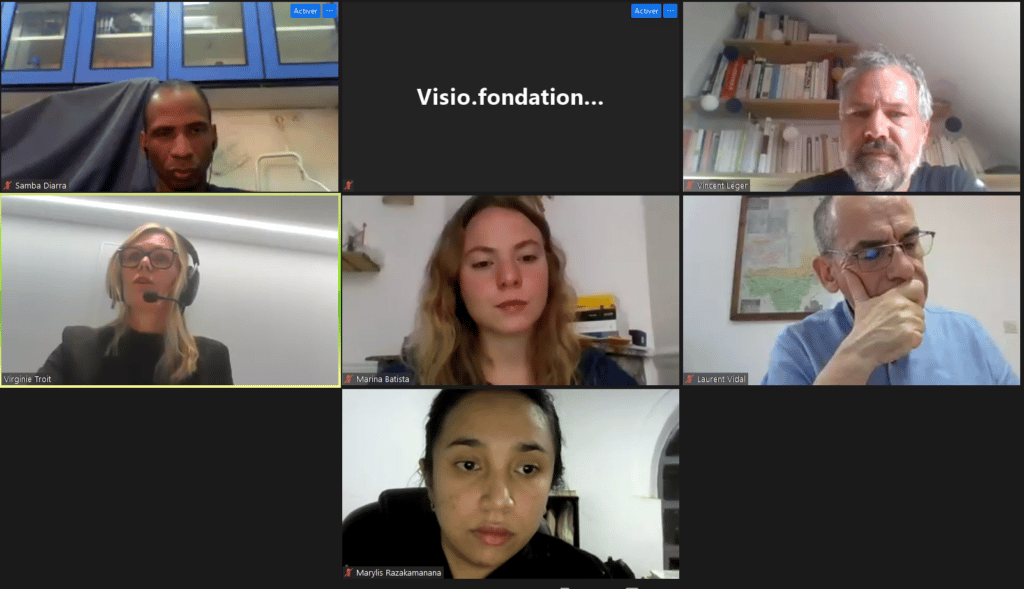On 17 May, the Foundation organised the 6th edition of the Instant Recherche webinar, a scientific debate bringing together researchers working on one of the Foundation’s priority themes via videoconference. This time, the programme included a discussion on humanitarian action and access to healthcare, with three panellists:
- Laurent Vidal – Doctor of Anthropology, IRD representative in Mali, and an Expert Associate to the Foundation
- Marilys Razakamanana – Economist, Head of the “Centre de Recherche pour le Développement” of the Catholic University of Madagascar, laureate 2018 of a Postdoctoral Research Scholarship of the Foundation
- Samba Diarra – Sociologist, laureate 2018 of a Postdoctoral Research Scholarship of the Foundation

The sixth edition of the Foundation’s scientific webinar entitled “Humanitarian action and access to health care: what new models for the effectiveness of the right to health” brought together three researchers in anthropology, economics and sociology. The aim was to discuss the challenges of access to healthcare in several contexts, particularly in Africa, and to consider the roles of the different actors (States, academics, humanitarian actors, etc.) involved in this struggle for the widest possible access to healthcare.
In Africa, where health systems remain particularly fragile, various situations directly influence the right to health and access to care. Social norms, the confrontation between traditional and conventional medicine, and the ways in which health crises are managed: these are some of the socio-cultural aspects outlined by the panelists that have a strong impact on access to health in these countries. The round table adressed the examples of Mali and Madagascar.
This « Instant recherche » discussed the main strengths and weaknesses of humanitarian actors’ intervention programmes in improving access to care. The panelists encouraged greater collaboration between scientists and humanitarian actors. This confluence between social science research and humanitarian action allows for the creation of new solutions, adapted to different local contexts, to guarantee the right to health and reduce the difficulties of access to care.
More than 80 connected people from 15 countries (academics, field workers, NGOs, students, institutions) attended the debate and enriched it at the end of the session with many concrete questions addressed to the panellists. The exchanges were recorded and the video is now available.
Review the exchanges
Back on the previous editions of “Instant Recherche”:
IR5 : « Océan Indien : terre de défis et innovations pour les acteurs humanitaires »
IR4 : “Le regard des sciences sociales sur les catastrophes”
IR3 : “Le regard des sciences sociales sur les migrations”
IR2 : “Le regard des sciences sociales sur une action humanitaire locale”
IR1 : “Le regard des sciences sociales sur les épidémies en Afrique”





